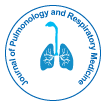எங்கள் குழு ஒவ்வொரு ஆண்டும் அமெரிக்கா, ஐரோப்பா மற்றும் ஆசியா முழுவதும் 1000 அறிவியல் சங்கங்களின் ஆதரவுடன் 3000+ உலகளாவிய மாநாட்டுத் தொடர் நிகழ்வுகளை ஏற்பாடு செய்து 700+ திறந்த அணுகல் இதழ்களை வெளியிடுகிறது, இதில் 50000 க்கும் மேற்பட்ட தலைசிறந்த ஆளுமைகள், புகழ்பெற்ற விஞ்ஞானிகள் ஆசிரியர் குழு உறுப்பினர்களாக உள்ளனர்.
அதிக வாசகர்கள் மற்றும் மேற்கோள்களைப் பெறும் திறந்த அணுகல் இதழ்கள்
700 இதழ்கள் மற்றும் 15,000,000 வாசகர்கள் ஒவ்வொரு பத்திரிகையும் 25,000+ வாசகர்களைப் பெறுகிறது
குறியிடப்பட்டது
- ICMJE
பயனுள்ள இணைப்புகள்
அணுகல் இதழ்களைத் திறக்கவும்
இந்தப் பக்கத்தைப் பகிரவும்
சுருக்கம்
Diaphragmatic Paralysis in Portuguese Patients: Prevalence of Late-Onset Pompe Disease - DIPPER Research
Winck JC
Pompe complaint is a rare autosomal sheepish neuromuscular complaint caused by acid α- glycosidase enzyme (GAA) insufficiency and divided into two distinct variants, immature- and late- onset. The late- onset variant is characterized by a diapason of phenotypic variation that may range from asymptomatic, to reduced muscle strength and/ or diaphragmatic palsy. Since muscle strength loss is characteristic of several different conditions, which may also beget diaphragmatic palsy, a protocol was created to search for the opinion of Pompe complaint and count other possible causes. Methods: We collected a sample size of 18 cases (10 ladies, 8 males) with a median age of 60 times and opinion of diaphragmatic palsy of unknown etiology, followed in the Pulmonology inpatient discussion of 9 centers in Portugal, over a 24- month study period. We estimated data from case's clinical and demographic characteristics as well as reciprocal individual tests including blood tests, imaging, neurophysiologic and respiratory function evaluation. All cases were estimated for GAA exertion with DBS (dried blood test) or serum quantification and positive results verified by serum quantification and sequencing. Results: Three cases were diagnosed with Pompe's complaint and recommended for enzyme relief remedy. The frequence of Pompe, a rare complaint, in our diaphragmatic palsy case sample was16.8. Conclusion: We conclude that DBS test for GAA exertion should be recommended for all cases with diaphragmatic palsy which, despite looking at all the most common causes, remains of unknown etiology; this would ameliorate both the timing and delicacy of opinion for Pompe complaint in this patient population. Accurate opinion will lead to bettered care for this rare, precipitously enervating but treatable neuromuscular complaint
பாடத்தின் அடிப்படையில் இதழ்கள்
- இயற்பியல்
- இரசாயன பொறியியல்
- உணவு மற்றும் ஊட்டச்சத்து
- உயிர் மருத்துவ அறிவியல்
- உயிர்வேதியியல்
- கணிதம்
- கணினி அறிவியல்
- கால்நடை அறிவியல்
- சமூக & அரசியல் அறிவியல்
- சுற்றுச்சூழல் அறிவியல்
- தகவலியல்
- தாவர அறிவியல்
- நர்சிங் & ஹெல்த் கேர்
- நானோ தொழில்நுட்பம்
- நோயெதிர்ப்பு மற்றும் நுண்ணுயிரியல்
- புவியியல் மற்றும் பூமி அறிவியல்
- பொது அறிவியல்
- பொருள் அறிவியல்
- பொறியியல்
- மரபியல் & மூலக்கூறு உயிரியல்
- மருத்துவ அறிவியல்
- மருத்துவ அறிவியல்
- மருந்து அறிவியல்
- வணிக மேலாண்மை
- விவசாயம் மற்றும் மீன் வளர்ப்பு
- வேதியியல்
மருத்துவ & மருத்துவ இதழ்கள்
- அறுவை சிகிச்சை
- இதயவியல்
- இனப்பெருக்க மருத்துவம்
- இம்யூனாலஜி
- இரத்தவியல்
- உடல் சிகிச்சை மற்றும் மறுவாழ்வு
- எலும்பியல்
- கண் மருத்துவம்
- கண் மருத்துவம்
- காஸ்ட்ரோஎன்டாலஜி
- குழந்தை மருத்துவம்
- சிறுநீரகவியல்
- சுகாதாரம்
- தொற்று நோய்கள்
- தோல் மருத்துவம்
- நச்சுயியல்
- நரம்பியல்
- நர்சிங்
- நீரிழிவு மற்றும் உட்சுரப்பியல்
- நுண்ணுயிரியல்
- நுரையீரல் மருத்துவம்
- பல் மருத்துவம்
- மனநல மருத்துவம்
- மயக்கவியல்
- மரபியல்
- மருத்துவ ஆராய்ச்சி
- மருந்து
- மூலக்கூறு உயிரியல்

 English
English  Spanish
Spanish  Chinese
Chinese  Russian
Russian  German
German  French
French  Japanese
Japanese  Portuguese
Portuguese  Hindi
Hindi